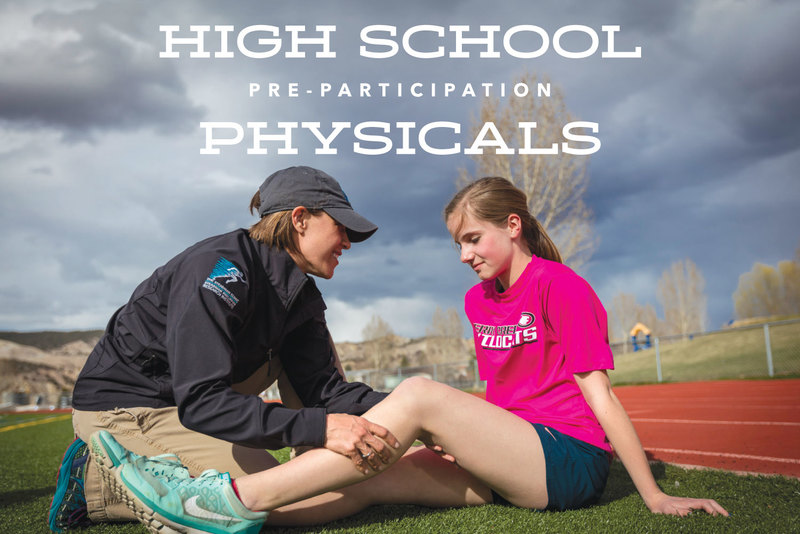News
The Acid Reflux Test
We'd just finished climbing at the rec center in Gypsum Jeff Shroll remembers. I was beating on my chest complaining about the acid reflux that I'd had for a decade or more. He looked at me and said 'I can fix that.' I said 'I'm listening.'
He was Dr. Barry Hammaker. The fix was an elective surgery called laparoscopic fundoplication and it changed Jeff Shroll's life.
Jeff is an active busy guy. Originally from Grand Junction he made his way to Gypsum from Crested Butte and has been the town manager for 20 years. He has coached track at Eagle Valley High School for 17 seasons enjoys running climbing skiing lifting weights fly fishing hunting and is determined to bag all of Colorado's 14ers.
However his gastroesophageal reflux disease (GERD) better known as acid reflux was hampering his ability to do the things he loved.
Running weight lifting really during any kind of cardio workout that acid reflux would kick up Jeff says. My stomach gets to going and that stuff comes back up and it would cause problems. Or if it was a good powder day and I was skiing really hard I'd get down to the bottom of a great run and I'd feel terrible. I hated that chest burning. I just hated it.
The chest burning is heartburn which is a symptom of acid reflux. Here's what happens: at the entrance to the stomach at the bottom of the esophagus is a valve. This valve usually closes as soon as food passes through. If it doesn't or if it opens too often acid produced by the stomach can splash up into the esophagus heartburn. Acid reflux disease is when this painful burning happens more than twice a week.
Acid reflux doesn't occur just during physical exertion. Stress can aggravate the condition and it can affect sleep too. It's all tied together Jeff explains. Stress is a part of life but I also have a stressful job. When you have a stressful job you need a good night's sleep but you can't get a good night's sleep because of acid reflux.
Another way to release stress is by exercising but acid reflux can be aggravated by physical exertion creating a lose-lose cycle for Jeff.
So when Dr. Hammaker said he might be able to fix Jeff's acid reflux Jeff was ready to listen.
Gastroesophageal reflux disease is a common problem and there are ways to address acid reflux with dietary and lifestyle modifications says Dr. Hammaker a surgeon at Mountain Surgical Associates at Vail Valley Medical Center. Things like losing weight avoiding an excess of caffeine and alcohol avoiding large meals and not eating right before bedtime. We often recommend lifestyle modifications either before or in conjunction with medicine to see what kind of improvement you can get.
Most people with standard acid reflux do not need surgery. For many people who have acid reflux or indigestion taking a pill like Nexium or Prilosec once or twice a day controls the problem and produces results. However medication doesn't work for everyone.
When medicine isn't working you need to have a proper evaluation to make sure that there's not something else going on that's much more serious like cancer says Dr. Hammaker. We'll take a detailed history find out what treatments have worked and what has failed. We'll do a lot of diagnostic testing like an upper endoscopy a pH study we'll have a look around maybe do a biopsy of the esophagus all to make sure that it's acid reflux.
Once all of the tests and studies are completed and the final diagnosis is acid reflux disease then laparoscopic fundoplication might be the next step. An elective surgery laparoscopic fundoplication is a procedure that recreates the valve between the esophagus and stomach. It's generally accompanied with an overnight stay in the hospital followed by diet limitations for 30 to 90 days after surgery. A relatively new procedure the end result is a repaired valve that's not too loose and not too tight allowing food to travel to the stomach but preventing acid from splashing into the esophagus.
Jeff underwent laparoscopic fundoplication in December 2009 and is enjoying life in a way that he couldn't before the surgery. He's eating what he wants when he wants and is pursuing his outdoor passions with vigor.
I had a hard time doing 14ers back then (before the surgery). I'd get my heart rate up and the lack of oxygen would aggravate it says Jeff. It has been way helpful it's easier running up and down peaks without acid reflux. Jeff has crossed 45 peaks off of his list so far.
I've joked with Dr. Hammaker 'why didn't I climb with you 10 years earlier to find out about this procedure?' Jeff says. If I had known about this years ago I would have stood in line. This procedure really provided relief and was a great help for me I know it could do the same for others.
He's the guy that does the real thing. I'm just a happy patient.
Mountain Surgical Associates (MSA) is a service of Vail Valley Medical Center. MSA is home to some of the most respected surgeons in Colorado. Specializing in emergency and trauma case they are also experts in:
- General surgery: abdominal thoracic and endocrine
- Laparoscopic surgery: hernia repair gall bladder colon and reflux disease
- Cancer surgery: breast colon and rectal endocrine lung and melanoma
- Trauma/critical care: around-the-clock diagnostic and care for critically ill and injured patients
- Wound and Ostomy: treatment of acute and chronic wounds
The team at MSA consists of: Sue Arford RN Dr. James Downey Dr. Reginald Franciose Dr. Barry Hammaker Jason Moore Ph.D PA and Dr. John Schultz.
Visit Mountain Surgical Associates online or call (970) 476-5036 for more information.
More News
-
New!
More

Vail Health and The Steadman Clinic Offer Free Physicals for High School Athletes
Physicals will be offered in both English and Spanish on two dates, May 17 at Battle Mountain High School and May 24 at Eagle Valley High School.
-
New!
More

Good Stress?
“Good stress” sounds like an oxymoron. After all, we’ve always been told stress is bad for our health. However, it’s possible that some stressors can actually be good for us and even enhance our lives.
-
More

Considering Cosmetic Procedures
As we age, our skin loses its elasticity and can leave some feeling less confident in their physical appearance. Cosmetic procedures can empower individuals to enhance their self-esteem and improve their overall quality of life.
